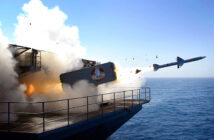
 It is a challenge to maintain even an umbrella view of global manoeuvres at play in 2018.
It is a challenge to maintain even an umbrella view of global manoeuvres at play in 2018.
With a proxy Middle Eastern regional war in Syria, it would be understandable that the USA, China and North Korea, would like to avoid an additional regional conflict on the Korean Peninsula, or worse, across the South China Sea.
President Trump, in his own, incredibly unique and unorthodox way, keeps analysts, economists and geo-political strategists uncertain on how exactly he intends to reach his end-game – ‘ Making the USA great again’. At least his intention is clear but the somewhat appearance of an ad-hoc, step by step transaction process, seems to have limited foresight into the future, in particular if a miscalculation is made.
National security was the basis of Trump imposing a US trade tariff of 25 per cent for steel and 10 per cent for aluminium, with exemptions only considered for close security and trading allies. The basis of the decision is that current terms undermine the US’s ability to source the steel and aluminium it needs to build military equipment such as tanks and warships, as well as the nation’s broader economic security.
The US trigger for a potential trade war, came just days after China increased its military spending further to 8.1% of GDP alongside a move to end presidential term limits, enabling Xi Jinping now to remain in office indefinitely. The limit of two five-year presidential terms was written into China’s constitution after Mao Zedong’s death in 1976 by Deng Xiaoping.
Russia has also latched on to the apparent wave of technological advances or, as Vladimir Putin stated, “risk drowning in that wave”. Speaking at a nationally televised address, Putin declared Russia’s development and testing of nuclear-powered cruise missiles, underwater drones and other weapons, in response to the US policy change and Trump’s announcement to expand the US nuclear capabilities. At the time of the announcement, Russia’s Foreign Ministry made clear Russia was very disappointed by the ‘confrontational feel and anti-Russian orientation’ of the document…Click here to read full article.






